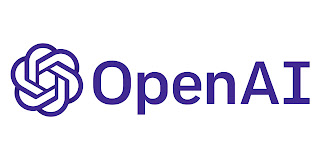OpenAI is a leading research organization dedicated to advancing artificial intelligence (AI) technology in a responsible and ethical manner. Its mission is to promote and develop friendly AI in a way that benefits humanity as a whole. To that end, OpenAI has taken a proactive approach to responsible AI, engaging in a number of initiatives and efforts aimed at ensuring that AI is developed and used in ways that align with human values and ethical principles.
One of the key ways that OpenAI is shaping the future of AI is through its research and development efforts. The organization is constantly working to improve AI technology, making it more powerful and more versatile. This includes developing new algorithms and models, improving existing ones, and exploring new applications for AI. OpenAI is also actively engaged in research that addresses the ethical, social, and economic implications of AI, such as how to ensure that AI is used for the greater good, how to prevent unintended consequences, and how to manage the risks associated with AI.
In addition to its research and development efforts, OpenAI is also committed to promoting responsible AI through collaboration and partnerships. The organization has formed partnerships with other organizations, governments, and academic institutions, working together to advance AI in ways that align with human values and ethical principles. OpenAI also collaborates with experts in fields such as ethics, philosophy, and law, ensuring that its work is informed by a diverse range of perspectives.
Another way that OpenAI is contributing to the responsible development of AI is through its approach to data privacy and security. The organization recognizes the importance of protecting sensitive data and ensuring that AI algorithms are used in ways that are consistent with privacy and security principles. OpenAI has implemented a number of measures to protect the privacy of users and ensure that AI is used in a secure and responsible manner.
Finally, OpenAI is working to promote responsible AI through education and outreach. The organization is dedicated to raising awareness about AI and its implications for society, and provides resources and educational materials to help individuals, organizations, and governments make informed decisions about the use of AI. OpenAI is also committed to fostering a community of AI experts and practitioners, providing a platform for them to share knowledge and collaborate on important AI initiatives.
In conclusion, OpenAI is playing a key role in shaping the future of AI, working to ensure that AI is developed and used in ways that align with human values and ethical principles. Through its research, partnerships, approach to privacy and security, and outreach efforts, OpenAI is contributing to the responsible development of AI and helping to build a future in which AI is used for the benefit of all.
#OpenAI #ResponsibleAI #LanguageModeling #Advancements"
.jpg)
.jpg)
.jpg)

.jpg)


.jpg)

.jpg)




.jpg)
